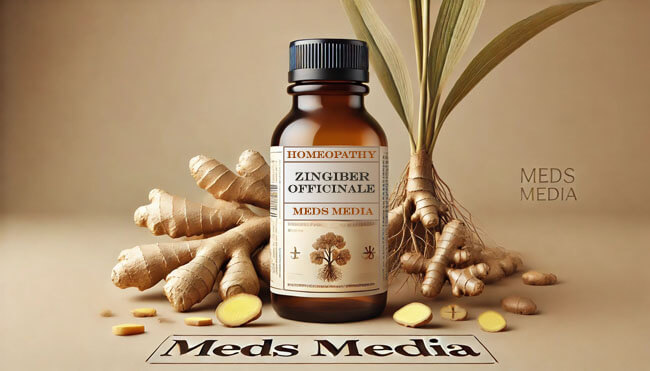Introduction
In homeopathy, anti-syphilitic remedies play a crucial role in addressing the chronic and often deeply rooted condition known as syphilis. Unlike conventional medicine, which directly targets the causative organism (Treponema pallidum), homeopathy focuses on balancing the body’s vital force to counteract the effects of the disease. These remedies are part of a broader category of anti-miasmatic treatments aimed at addressing syphilitic miasm—a term coined by homeopaths to describe a constitutional weakness or predisposition that leads to chronic diseases resembling or stemming from syphilis.
Understanding Anti-Syphilitic in Homeopathy
The concept of anti-syphilitic remedies in homeopathy revolves around treating not only the active symptoms of syphilis but also the lingering chronic effects of the disease. Homeopathic practitioners believe that syphilis can create a deep-seated miasm that may manifest in a variety of physical, emotional, and psychological symptoms. Anti-syphilitic remedies are thus selected to match the individual’s overall symptom picture, promoting holistic healing and preventing recurrence.
How Anti-Syphilitic Remedies Work
Homeopathic anti-syphilitic remedies are designed to stimulate the body’s natural healing processes by addressing the underlying miasmatic influence of syphilis. These remedies are highly diluted and prepared through a process known as potentization, which involves serial dilution and succussion (vigorous shaking). The principle behind this is to enhance the energetic properties of the substance while minimizing toxicity.
When a homeopath prescribes an anti-syphilitic remedy, they consider the patient’s entire symptomatology, including physical, mental, and emotional aspects. The goal is to find a remedy that closely matches the patient’s condition, thereby allowing the body’s vital force to restore balance and harmony.
List of Key Anti-Syphilitic Remedies in Homeopathy
Several homeopathic remedies are recognized for their effectiveness in addressing syphilitic miasms. Below is a list of some key anti-syphilitic remedies, along with brief descriptions:
Arsenicum Album (Ars.)
- Indications: For syphilitic patients who experience intense restlessness, anxiety, and burning pains. Commonly used when there is a tendency toward ulceration with severe burning, particularly at night.
- Description: Arsenicum Album is a potent remedy for individuals who are weak, emaciated, and have a strong fear of death. It is effective in cases where ulcers are surrounded by inflamed, burning tissue, and the patient experiences marked fatigue and despair.
Arsenicum Iodatum (Ars. Iod.)
- Indications: Useful in advanced syphilitic cases with cachexia, chronic ulcers, and deep-seated bone pains. Particularly effective when there is rapid tissue degeneration and weight loss.
- Description: Arsenicum Iodatum is indicated for patients with severe wasting diseases, marked by chronic ulcerations and offensive discharges. The remedy helps when there is a combination of syphilitic and tubercular miasms, with symptoms of debility and emaciation.
Aurum Metallicum (Aurum Met.)
- Indications: Prescribed for syphilitic patients with severe depression, suicidal ideation, and bone pain, especially in the nasal bones and skull.
- Description: Aurum Metallicum is particularly suited for individuals suffering from profound mental and emotional distress, often accompanied by a sense of worthlessness and hopelessness. The remedy is beneficial for addressing the deep-seated effects of syphilis on the bones and psyche.
Calcarea Arsenicosa (Calcaria Ars.)
- Indications: Used for syphilitic patients with glandular swellings, skin ulcers, and general weakness. It is also helpful for those who exhibit a combination of syphilitic and scrofulous (tubercular) tendencies.
- Description: Calcarea Arsenicosa is indicated for patients who are chilly, weak, and prone to chronic ulcerations. This remedy is particularly effective for individuals with a history of glandular issues and who display symptoms of exhaustion and malnutrition.
Fluoricum Acidum (Fluoric Acid)
- Indications: Effective in treating deep ulcers, varicose veins, and bone caries in syphilitic patients. It is also used for cases with chronic discharges that are acrid and offensive.
- Description: Fluoric Acid is particularly beneficial for patients with syphilitic conditions that lead to destruction of bone and tissue. The remedy is suited for those who are indifferent, apathetic, and have a tendency toward extreme destructiveness in their symptoms.
Hepar Sulphuris Calcareum (Hep.)
- Indications: Ideal for syphilitic patients with suppurative conditions, where ulcers tend to form abscesses. It is also used when there is extreme sensitivity to touch and cold.
- Description: Hepar Sulphuris Calcareum is indicated when there is a tendency toward abscess formation, with symptoms such as foul-smelling pus and a craving for acidic foods. The patient may also display irritable and hypersensitive behavior, with a fear of drafts and cold.
Kali Bichromicum (Kali Bichrom.)
- Indications: Used for syphilitic patients with thick, ropy discharges, ulcers with well-defined edges, and deep-seated bone pain. It is particularly effective for nasal and throat ulcers.
- Description: Kali Bichromicum is a key remedy for treating ulcerations with a characteristic punched-out appearance. The patient may experience severe pain at the root of the nose, thick post-nasal discharge, and a sensation of pressure in the affected areas.
Kali Carbonicum (Kali Carb.)
- Indications: Suitable for syphilitic patients with sharp, stitching pains, especially in the chest and back. It is also used when there is a history of syphilis with complications such as respiratory issues and heart problems.
- Description: Kali Carbonicum is indicated for patients who are irritable, sensitive, and experience severe pains that come and go suddenly. The remedy is especially useful for addressing the long-term effects of syphilis on the respiratory and cardiovascular systems.
Kali Iodatum (Kali Iod.)
- Indications: Effective for syphilitic patients with chronic nasal catarrh, bone pain, and nocturnal headaches. It is also used when there is rapid tissue destruction and glandular enlargement.
- Description: Kali Iodatum is particularly suited for cases with syphilitic bone pain that is worse at night, and for ulcerations of the nasal septum. Patients may experience a sense of fullness in the head, with tearing pains that extend to the face and neck.
Lachesis Mutus (Lachesis)
- Indications: Used for syphilitic patients with purplish discoloration of ulcers, hemorrhagic tendencies, and symptoms that are worse after sleep. It is also effective for nervous symptoms and a tendency toward jealousy and suspicion.
- Description: Lachesis is indicated for patients with syphilitic miasms who exhibit extreme sensitivity and intolerance to tight clothing around the neck. The remedy is useful when there is a bluish hue to the skin, with ulcerations that bleed easily.
Lycopodium Clavatum (Lyc.)
- Indications: Beneficial for syphilitic patients with digestive issues, flatulence, and weakness. It is also used for cases with deep-seated urinary and sexual symptoms.
- Description: Lycopodium is indicated for patients who are mentally alert but physically weak, with a tendency toward right-sided complaints. The remedy is especially effective for chronic liver and digestive issues that stem from syphilitic conditions.
Mercurius Solubilis (Merc.)
- Indications: Ideal for syphilitic patients with ulcerations, swollen glands, and foul-smelling discharges. Commonly used when symptoms are worse at night and there is excessive salivation.
- Description: Mercurius Solubilis is a primary remedy for syphilitic infections with a tendency toward ulceration and tissue destruction. The patient may experience profuse sweating, metallic taste, and increased sensitivity to temperature changes.
Nitricum Acidum (Nitric Acid)
- Indications: Used for advanced syphilitic conditions characterized by deep, painful ulcers, sharp splinter-like pains, and foul-smelling discharges.
- Description: Nitricum Acidum is often prescribed when there is a history of syphilis, with the presence of destructive ulcerations, especially around mucous membranes and skin. It is suited for individuals who are irritable and hypersensitive.
Phytolacca Decandra (Phytolacca)
- Indications: Effective for syphilitic patients with glandular swellings, hard ulcers, and severe pain in the bones. It is also used for cases of sore throat and tonsillitis with syphilitic origins.
- Description: Phytolacca is indicated for patients with syphilitic conditions that manifest as hard, painful swellings, particularly in the throat and lymphatic system. The remedy is useful for easing bone pain that worsens at night.
Sarsaparilla Officinalis (Sarsaparilla)
- Indications: Used for syphilitic patients with urinary tract symptoms, including severe pain at the end of urination, and for skin conditions such as eruptions and ulcers.
- Description: Sarsaparilla is particularly beneficial for individuals suffering from syphilitic conditions affecting the urinary tract and skin. The remedy is suited for patients who experience severe burning pain during urination, with a tendency toward ulcerations on the skin.
Staphysagria (Staphysagria)
- Indications: Ideal for syphilitic patients with suppressed emotions, a tendency toward self-reproach, and genital symptoms. It is also used for healing surgical wounds and deep emotional scars.
- Description: Staphysagria is indicated for patients with a syphilitic miasm who suppress their anger and emotions, leading to chronic conditions. The remedy is beneficial for genital issues, including painful sexual intercourse and urinary discomfort.
Syphilinum (Luesinum)
- Indications: Used for congenital or inherited syphilitic conditions, and for individuals with a history of syphilis who exhibit chronic symptoms like bone pain, ulcers, and neurological disturbances.
- Description: Syphilinum is a nosode prepared from syphilitic material. It is considered when there is a pattern of recurring infections, bone deformities, or nocturnal headaches that worsen at night. It is also used for patients with a family history of syphilis.
Tuberculinum
- Indications: Beneficial for syphilitic patients with a history of tuberculosis, chronic respiratory issues, and extreme restlessness. It is used when there is a combination of syphilitic and tubercular miasms.
- Description: Tuberculinum is indicated for patients with chronic respiratory symptoms, a tendency to catch colds easily, and a desire for change. The remedy is often prescribed when there is a combination of syphilitic and tubercular tendencies, with recurrent infections and weakness.
Insights into Anti-Syphilitic Treatment
Anti-syphilitic remedies are not just limited to treating active syphilis; they are also used to address the long-term effects of the disease and its impact on a person’s overall health. Homeopaths believe that by addressing the miasm, they can help prevent the recurrence of syphilitic symptoms and improve the patient’s quality of life.
It is important to note that while homeopathy offers a holistic approach to treating syphilitic conditions, it should be used under the guidance of a qualified homeopath. Conventional medical treatment is essential for acute syphilis, and homeopathic remedies may serve as complementary therapies to support the patient’s overall well-being.
LEADING ANTI-SYPHILITIC MEDICINES:
Anthracinum, Arg nit., Arg.met., Ars. bromatum, Ars. metallicum, Ars.alb., Ars.iod., Artemisia vulgaris, Aurum.mur.nat., Asafoetida., Aurm.iod., AURUM MET., Aurum.brom., Badiaga, Baptisia, Calc.ars., Calc.fl., Calc.iod.; Calc.s., Calendula, Cannabis sat, Cantharides, Carbo.an., Carbo.veg., Carbo.an., CARCINOSIN., CINAB., Clematis., Conium., Corallium.rub., FLUORIC ACID., Guaiacum, Hep.sulph., Hydrastis, HYDROPHOBINUM, Iodum., Kali.ars., KALI.BICH., Kali.carb., KALI.IOD., Kali.mur., Kali.sulph., Kalmia., KREOSOTE., Lach., Ledum pal., Lycopodium, Manganum aceticum, Merc. iod flavus, Merc.bin.iod., Merc.bromatus., Merc.cor., Merc.cyan., Merc.dulcis, Merc.iod.fl., Merc.iod.rub., Merc.proto iod., MERC.SOL., MEZEREUM., Morphinum, Muriatic acid, Myristica seibifera, NITRIC ACID, Ornithogalum, Osmium., Paeonia, Petroleum., Phos, Phos.ac., Physostigma, PHYTOLACCA, Pyrogen, Ratanhia, Rhus Ven, Sabadilla, Sarsaparilla, Silicea, Solanum nigram, Spartium scoparium, STELLARIA., Stillingia, Sulphur, Sulphuric acid, Sulphurosum acidum, SYPHILINUM., Syzigium jambo, TARANTULA CUB, Thaspium aureum, Trifolium pratese, Trombidium, Tuberculinum.
Related links for Further Exploration:
Select Your Homeopathic Medicine Dose and Potency
Potency Selection Guide
Relationship of Remedies
Why Meds Media guides are different
We focus on clear, practical explanations of homeopathic and natural health topics so you can understand remedies, symptoms, and lifestyle changes in simple language.
Meds Media is an educational resource only. Always consult a qualified doctor or homeopathic practitioner before starting, stopping, or changing any treatment.
Similar Posts You may also like

LM Potencies in Homeopathy Explained | Insights from the 6th Edition of the Organon
Zincum Picricum Homeopathic Medicine & Personality | Uses, Benefits & Indications
Zincum Phosphoricum Homeopathic Medicine & Personality | Uses, Benefits & Indications
Zincum Iodatum Homeopathic Medicine & Personality | Uses, Benefits & Indications
Zincum Bromatum Homeopathic Medicine & Personality | Uses, Benefits & Indications
Zea Homeopathic Medicine & Personality | Uses, Benefits & Indications
Zincum Aceticum Homeopathic Medicine & Personality | Uses, Benefits & Indications
Zincum Cyanatum Homeopathic Medicine & Personality | Uses, Benefits & Indications
Zincum Muriaticum Homeopathic Medicine & Personality | Uses, Benefits & Indications
Zincum Oxydatum Homeopathic Medicine & Personality | Uses, Benefits & Indications
Zincum Sulphuricum Homeopathic Medicine & Personality | Uses, Benefits & Indications
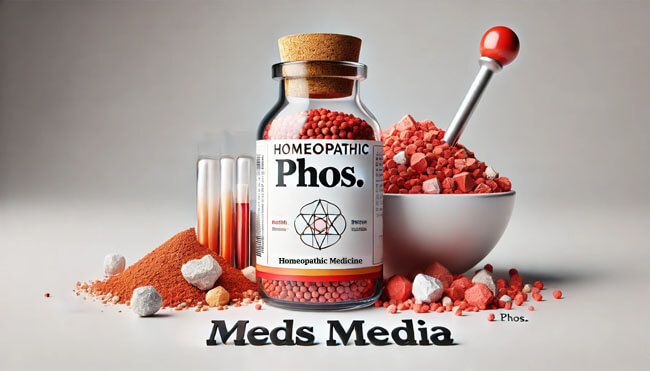
Phosphorus Homeopathic Medicine & Personality | Uses, Benefits & Indications
Causticum Homeopathic Medicine & Personality | Uses, Benefits & Indications
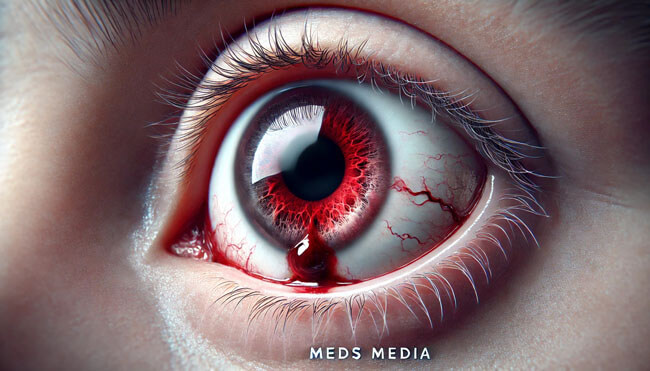
Blood Clot in Eyes: Symptoms, Homeopathic Treatment & Prevention
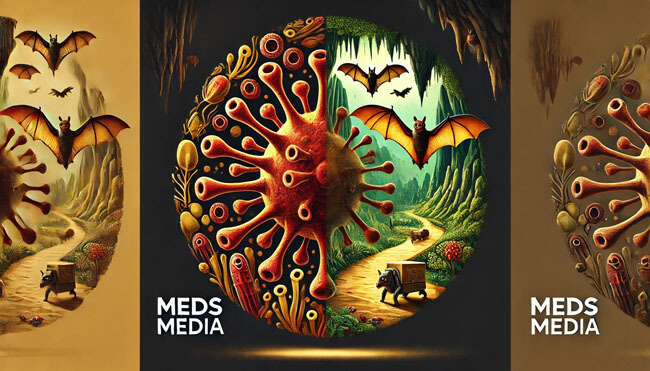
Marburg Virus Disease: Causes, Symptoms & Treatment

Veratrum Viride Homeopathic Medicine & Personality | Uses, Benefits & Indications
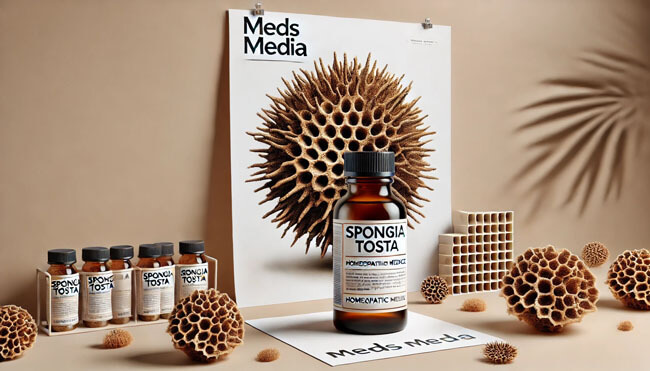
Spongia Tosta Homeopathic Medicine & Personality | Uses, Benefits & Indications
